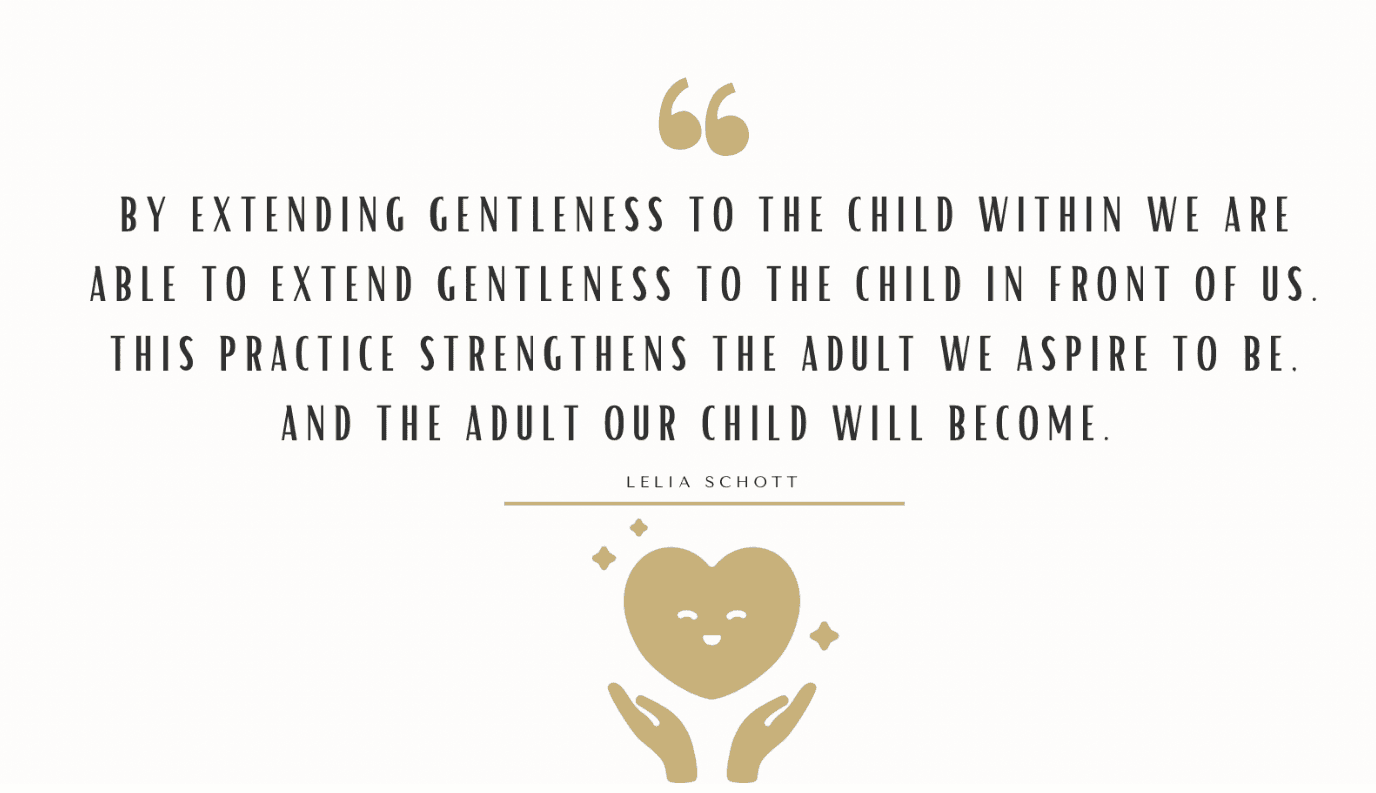
Recovering from critical parenting happens one moment at a time.
Published: 8/25/2022
The critic in your head is not your voice, it is fear.
It is a small child trying to protect you from rejection, failure, vulnerable feelings and beliefs of “not enoughness.”
We all have that little protector to a lesser or greater degree, depending on who raised us.
Our little protector means well, but need our adult- self to take over because they’re not mature or responsible enough to be in the drivers seat.
How do we conquer fear? How do we take the drivers seat back from a little person who is hell bent on being in control?
We bathe them in compassion on repeat, as we R.I.S.E they can rest.
R- Reintegrate:Recognize that excessive criticism comes from a place of hurt. Critical parents have unhealed, unacknowledged, and unaccepted parts of them that are triggered by their children. They are stuck in a perpetual bitter cycle of projection, pain, shame, loneliness, and disconnection. Parents can't help but see themselves in their children. Unsurprisingly, unhealed pain is predominantly projected onto a critical parent’s own children.Restore what was taken from you by learning how to soften the cycle.
I - Inner-Nurturing Parent:Remind yourself that it was never your fault! The reason toxic parenting deeply wounds the psyche is little children are egocentric by design and understandably infer that since their parents are so frustrated and disappointed in them it must be because they're not good enough and don't deserve the love and protection given to other children. Inner-Nurturing reminds us that we never deserved the way we were treated. Accepting this is a big step forward on the healing journey.A small part of you always believed you were good inside and that is what kept you going. You have always been your own nurturer, protector and connector. You are incredibly brave and beautiful. Practice speaking kindly to yourself and your children.💗Expand on this💗
Safety:It's okay to let go of toxic parents. And it's okay not to.
Allow yourself to make decisions that invite safety and release shame as you gently and consistently grow in emotional, physical, and relational safety.
It makes sense to be angry about what hurt you. Let it guide you to be curious about what you need to feel safe connecting to your own values and deeper emotions underneath the anger or anxiety. Often sadness, abandonment, loneliness and inadequacy lie hiding underneath anger or anxiety. Processing and learning how to be emotionally sovereign help us to be emotionally supportive of our children. Learning how to consciously communicate our feelings and needs also helps us to avoid critical communicative default patterns.
Empathy & Equity: Offer the child within the same empathy and kindness you aspire to offer the child in front of you. We heal the inner child and the children before us one compassionate thought and courageous action at a time. Remember, you are no longer that scared little child trying to be perfect, or falling apart, to get the help you needed. You are RISING
With love,
♥︎ Lelia Schott